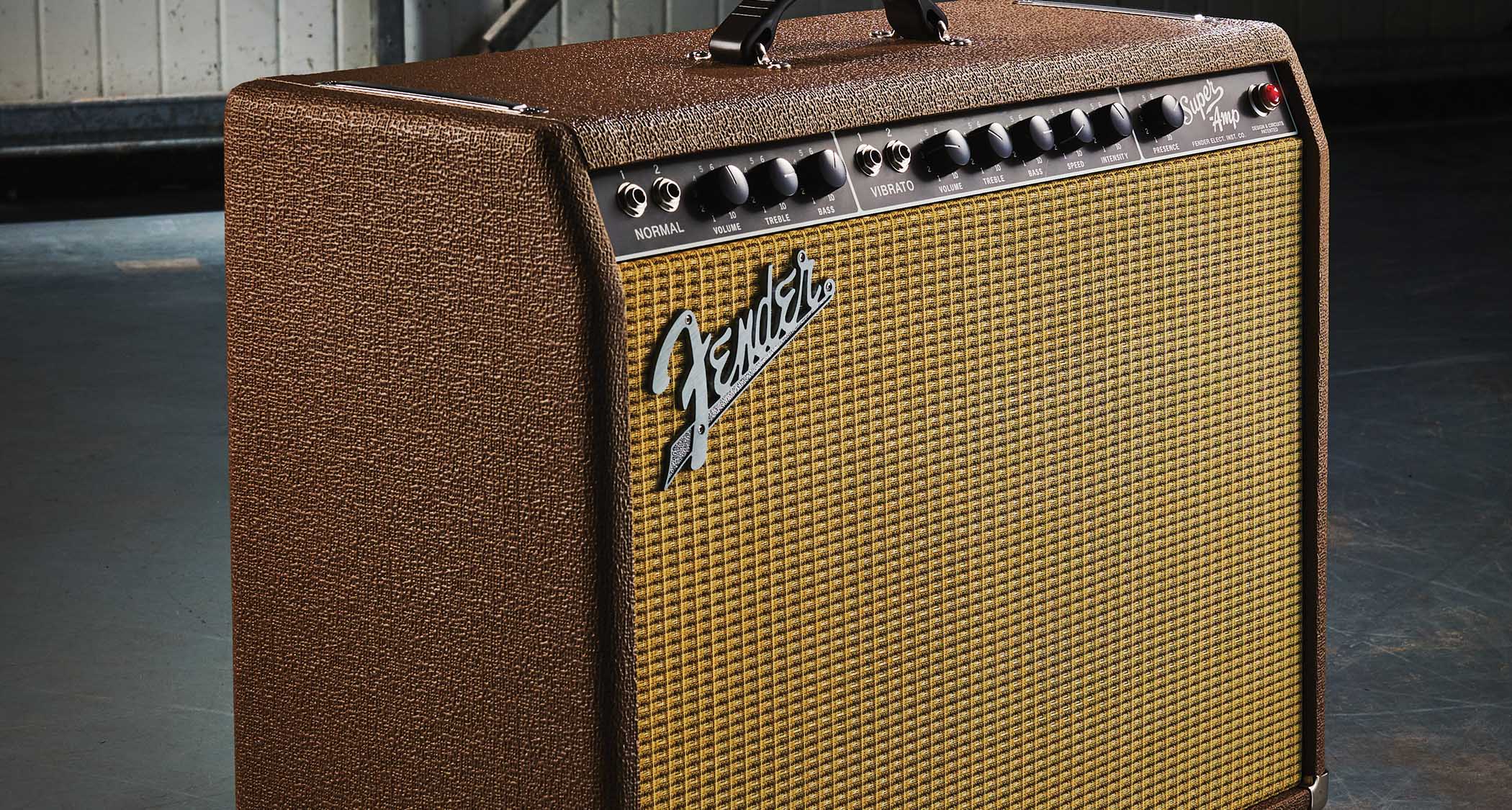“CBS ran an ad that said, ‘6 million people have heard the sound of his guitar. Let us introduce you to him…’ That made a huge rift”: Barry Goudreau was there from the beginning of Boston – but has regrets about how things ended with Tom Scholz
Gibson wielder, who always preferred Marshall to Scholz’s Rockman brand, recalls being edged out but not caring at first, until it led to an angry split and legal repercussions
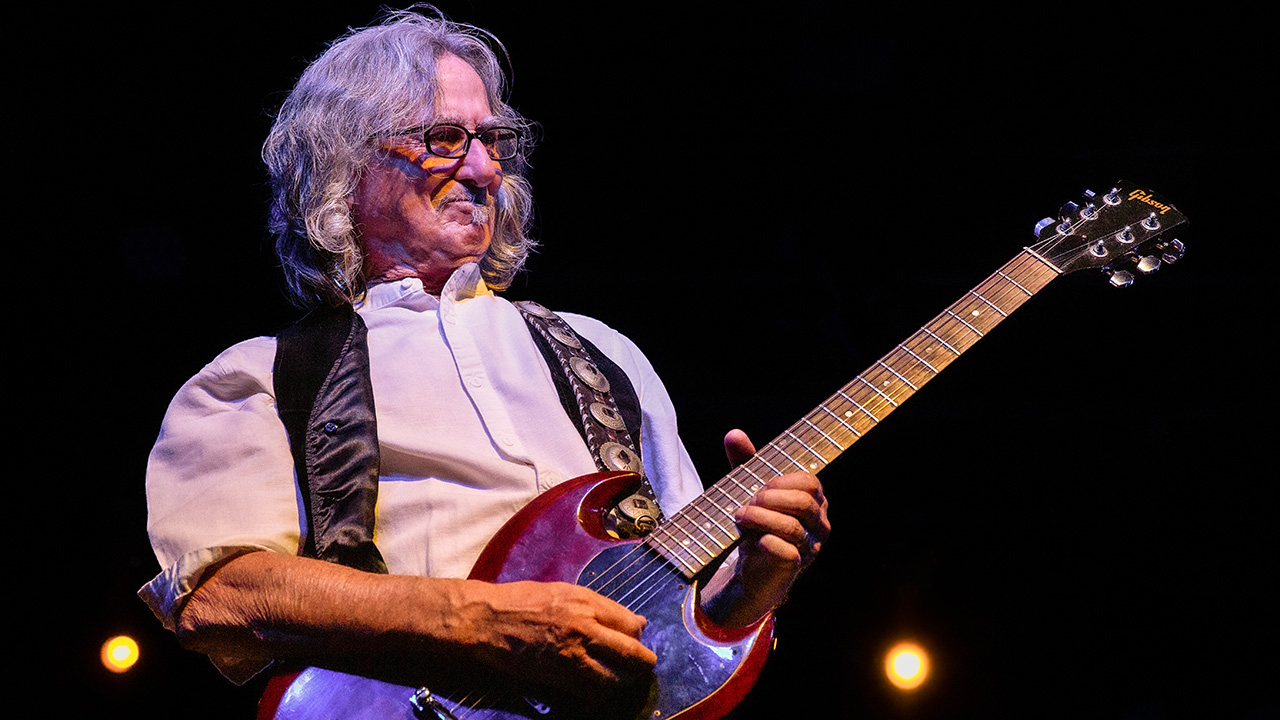
All the latest guitar news, interviews, lessons, reviews, deals and more, direct to your inbox!
You are now subscribed
Your newsletter sign-up was successful
Boston co-founder Barry Goudreau was a guiding light behind the band’s 1976 self-titled album, which plays like a greatest-hits record. Their second record, 1978’s Don’t Look Back, wasn’t far behind.
But it wasn’t all sunshine and rainbows for Goudreau, who handled guitar duties on demo recordings before Tom Scholz took over. Scholz’s hyper-perfectionism led to his his bandmates being shut out from the recording processes.
Eventually the wheels came off, leading to Goudreau’s firing in 1981 and a string of legal battles. Still, he recalls the early period as “a life-changing experience,” adding: “The fact that it was so successful lent me the career that I’ve had. I can’t downplay my years in Boston.”
He went on to form Orion the Hunter, RTZ, and Barry Goudreau’s Engine Room to varying degrees of success. And if you’re wondering if a reunion is in the works for the 50th anniversay of Boston’s debut, don’t.
“Brad Delp is gone, Sib Hashian passed away, and Fran Sheehan had an injury to his hand and doesn’t play anymore,” he says. “There’s not much hope of any kind of reunion. But people are still coming out to see me, and I’m still enjoying the hell out of it. I’ve had a great career – I certainly can’t complain about it.”
What inspired you to pick up the guitar?
“I was 11 when I started taking lessons. I had actually asked my parents before that, but they figured it was just a thing I was going through. We ended up borrowing an acoustic guitar from our babysitter. I started taking lessons and they realized I was serious about it, so they bought me my first guitar.
All the latest guitar news, interviews, lessons, reviews, deals and more, direct to your inbox!
“It was a white 1962 Fender Stratocaster. I was just in heaven, because one of the first records I ever bought was the Beach Boys’ Surfin’ Safari, and they all had white guitars. I felt like I’d arrived!”
What was it like for an aspiring player growing up in Boston?
“I started my first band when I was 13. I was mostly a rhythm player at that point, but by the time I got to high school I was in another band. One of the other guys introduced me to the blues – specifically, Michael Bloomfield with the Paul Butterfield Blues Band. I learned how to play lead guitar to the East-West record.
Tom started putting together his own recording setup, and the deeper he got into it, the less I was playing
“I was in some other bands, including one with Sib, the drummer with Boston. We had a regular gig in the ‘combat zone,’ which was an adult entertainment area. We did seven nights a week, seven sets a night. I’d get home at two in the morning, get up and go to school the next day.”
You met Tom Scholz after you got to college, right?
“I tried to step away from music to concentrate on college, because I was the first one in my family to go. But I started another band and we’d rehearse in the basement of a frat house at MIT. We didn’t have any aspirations, but we put an ad in the newspaper for a keyboard player. That’s when I met Tom Scholz for the first time.
“He came out and joined up. He’d probably just graduated from MIT, so I think he was comfortable with being around MIT people at the fraternity house.”
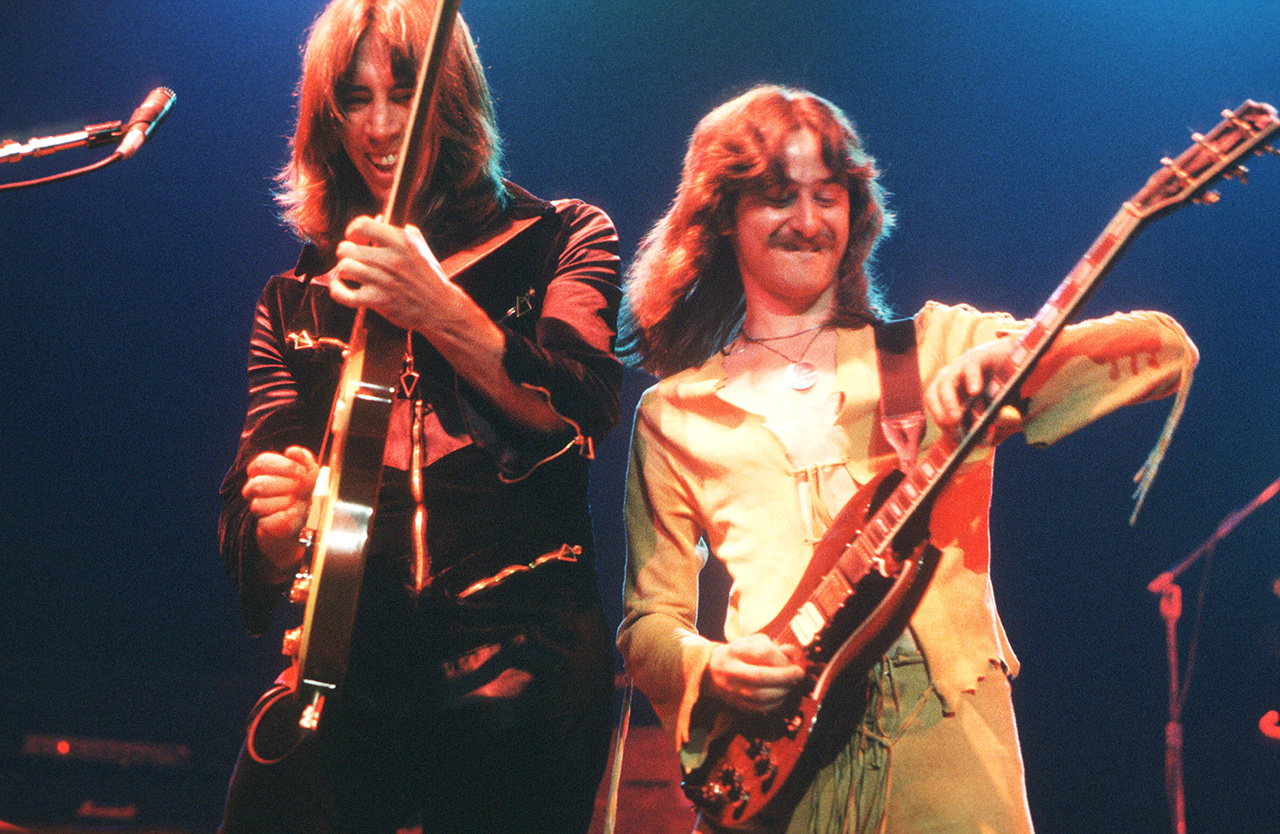
Is it true that you played all, or most, of the guitars on Boston’s demos?
“The very first time we recorded was in late ’69 or early ’70. Tom and I went into the studio in Massachusetts and recorded a song called San Francisco Day, which later became Hitch a Ride.
“It was very expensive doing that. So Tom started putting together his own recording setup, and the deeper he got into it, the less I was playing, the more he was playing. The demos that got us the record deal were mostly Tom.”
Was what Tom played different from what you’d played on the early demos?
“A lot of the songs were rewritten several times, so it’s hard to follow it. For instance, San Francisco Day, which became Hitch a Ride, I played all the guitar on that one, and when Tom re-recorded it, a lot of that stayed the same.
“The solo at the end, the first several bars, are the same solo I was playing, and then Tom took it from there. So, like I said, there were several versions of every song, – there were several different versions of More than a Feeling that got rewritten before it became More Than a Feeling.”
Were you expecting a more collaborative approach to Boston’s records?
“Absolutely – especially when we got past the first record and into Don’t Look Back. Tom felt as though he was being pressured into doing a record before he was really ready. We’d hoped that would mean he’d bring us in to help more and play more – but the opposite happened. He became even more isolated and played everything himself.”
The Rockman was essentially Boston in a box! That’s what we called them
It was more of a band approach on tour, where you and Tom seemed to have great chemistry in translating those songs.
“Yeah, we were aligned pretty closely. When I first met Tom, he was just starting to play guitar, so stylistically there was a lot that was similar in our playing styles. We were able to really lock in on the double guitar stuff. I did almost 400 shows with the band for the first two tours – we put a lot of time and effort into it.”
What was your typical touring rig like then?
“I think people relate me to the Gibson SG that I played all through the Boston years, which came from going from seeing Cream play in 1968, and Eric Clapton was playing an SG through Marshall stacks.
“I thought, ‘That’s what I gotta have,’ and I bought my first SG guitar in ’69. It took a couple more years until I was able to afford the Marshall amps. Tom and I used those until the third record, when he’d developed his Rockman device.”
What were your thoughts on the Rockman when you first heard it?
“It was essentially Boston in a box! That’s what we called them. Even though I’d left the band when they came out, he did send me one. I tried it out but I stuck with Marshall amps, and I’m still using Marshall gear.”
By the time of Don’t Look Back did you have very little input overall?
“I had less input into the second record than I did the first, which was disappointing. I’d have been in the studio every day, doing whatever I could to move it along. It didn’t go in that direction. But when the record was done, it was back to a group setting to get the tour together.”
Did the band expect your first two records to be so successful?
“No, not at all. I’m sure you’ve heard the stories about all the demos going out, and pretty much every record label turned the band down, including CBS, who eventually signed us! Lennie Petze, one of the execs at CBS, had a copy of the rejection letter they sent us on the wall in his office, as a reminder to other people about happened with that.”
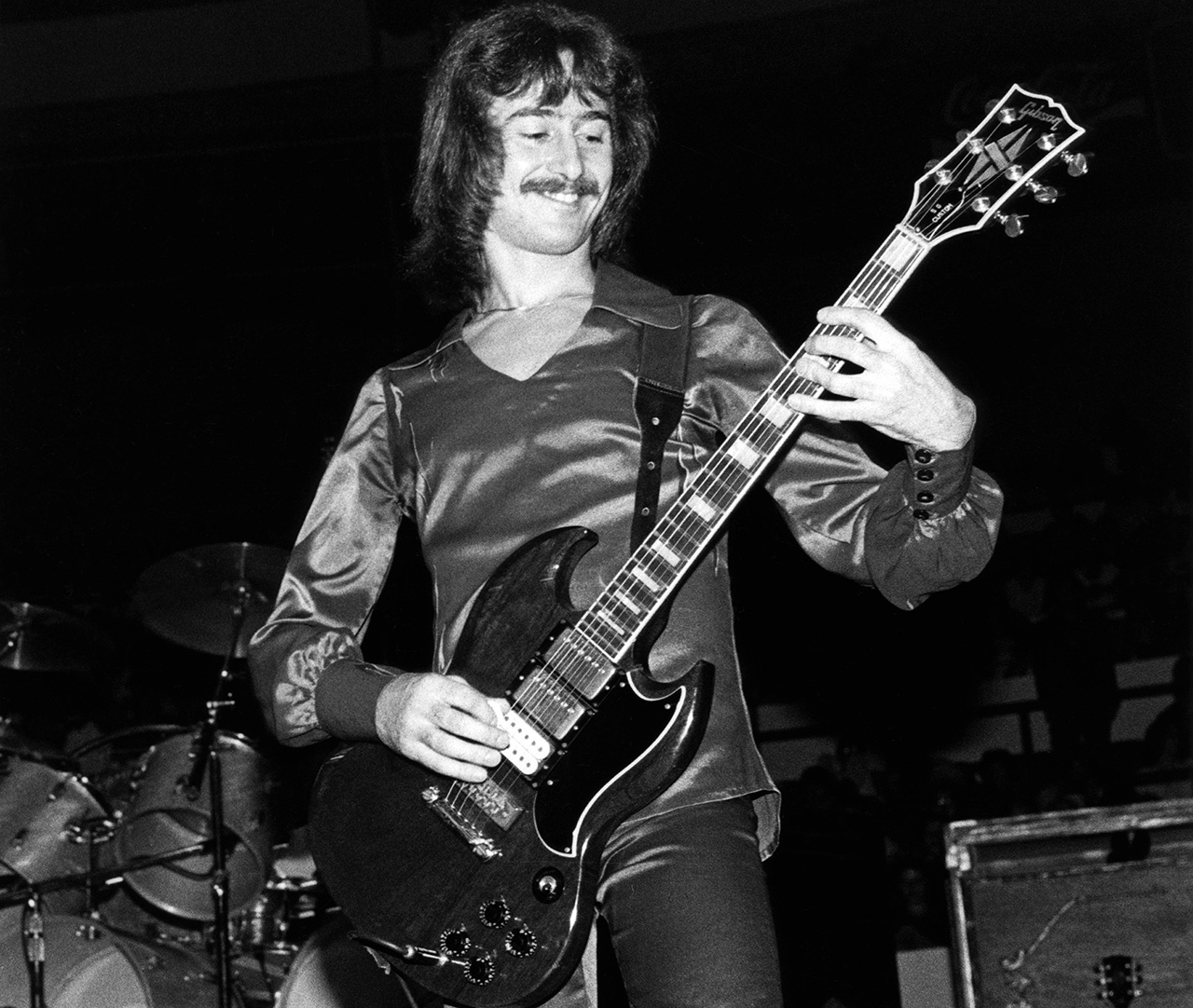
Why did things begin to unravel after Don’t Look Back?
“The last tour I did was in the fall of ’79. We went to Europe and Tom wasn’t really enthusiastic about it. He was pretty unhappy and it filtered down through the rest of us. Everybody felt as though things were changing, and that was my cue to leave the band.”
You were still a member in 1980 when you recorded your solo record, Barry Goudreau, which Tom supported – until he didn’t.
“Right after we came home from Europe, Tom got us all together and said, ‘I’m going to take the next year off. If you guys have something else, now would be the time.’
Tom took thought I was trying to make myself the guy behind Boston. That made a huge rift
“I hadn’t focused on songwriting because Tom was doing such a good job with it. So I started writing some ideas down, went to Brad to help me out with lyrics, and after we had several songs together, Brad and I went and played them for Tom.
“My hope was he’d say, ‘I like some of this. I’ll consider using it for another Boston record.’ But what he said was, ‘If you’re going to do a solo record, I’ll produce it.’ I knew the last thing the label wanted was Tom working on a project other than Boston. I realized it wasn’t going to happen.
“So Brad and I continued writing and recording, and we kept that year timeframe in mind. About nine months in, CBS put it out.
CBS’s promotional campaign upset Tom, leading to him firing you from Boston. What happened there?
“I think everybody knows Tom was not very happy. The ad was a picture of me, and it said, ‘Six million people have heard the sound of his guitar. Let us introduce you to him…’ I saw that as, ‘We want to introduce you to the other guy that you may not know in Boston.’
“Tom took it as I was trying to make myself the guy behind Boston. That made a huge rift. Probably three or four months after that, Tom got the band together and said he wasn’t going to work with me anymore. That was my time to go.”
In 1981 the public perception was that you were still in Boston. You were even sued by CBS in 1983, along with the rest of the band, for not completing the Third Stage album on time.
“It was tough. The label, in order to put some pressure on Tom, cut off all monies to the band. It added a little extra anxiety there. So I put another band together called Orion the Hunter. I recorded for CBS – the same label – and I was really happy with it. We opened for Aerosmith on the Back in the Saddle tour. But the record didn’t do what I’d hoped, and I stepped away from that for a while.”
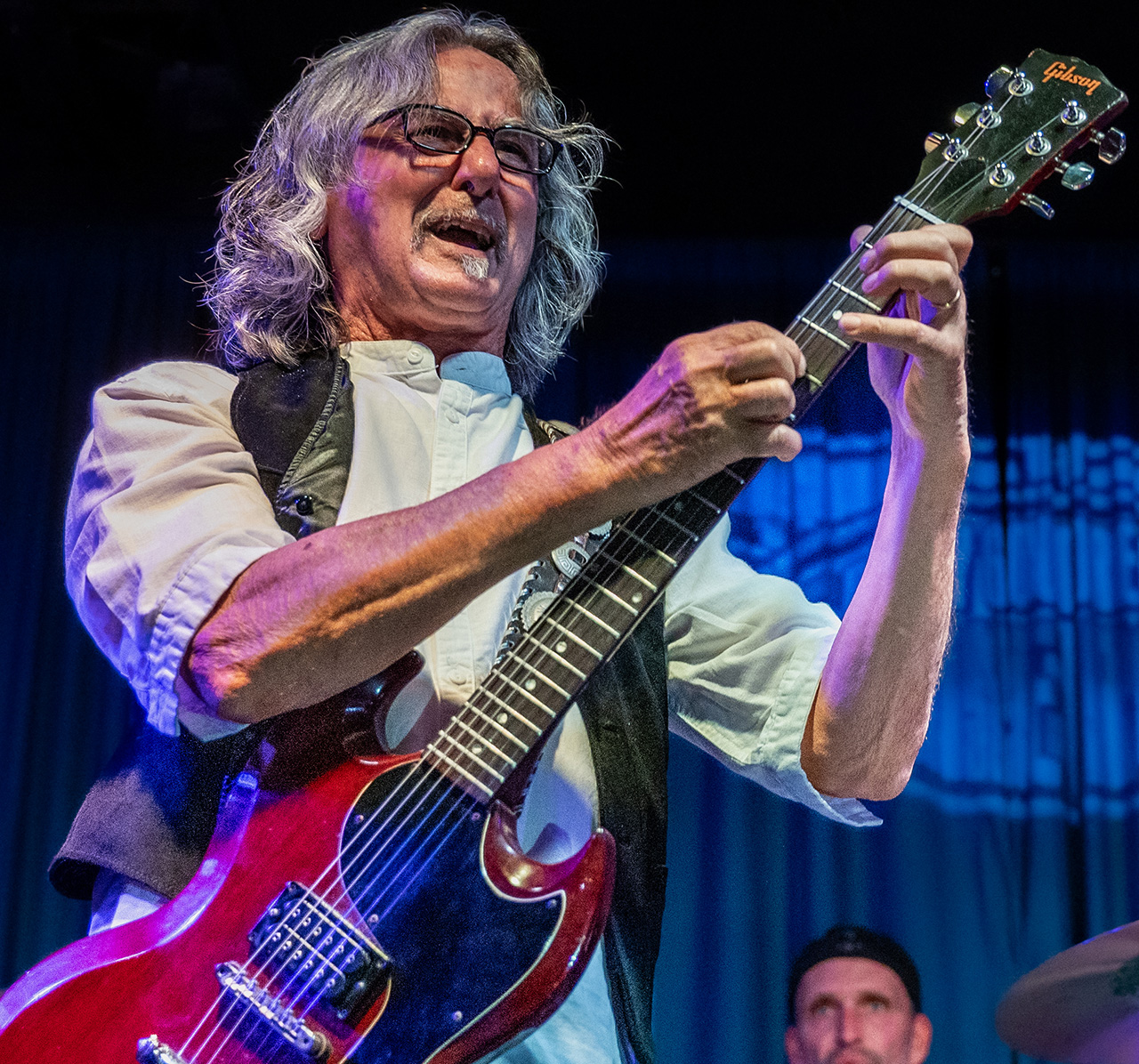
You formed RTZ with Brad Delp in 1990 and worked with him until the end of his life in 2007.
“Brad, at that point, was my brother-in-law, so we saw each other all the time. He started working with me again, writing lyrics, and we said, ‘Let’s go ahead and make this a band.’ We had really high hopes – but almost immediately, Nirvana came out, and classic rock died a quick death!”
What can you say about Brad Delp, with whom you clearly had a close personal and creative relationship?
“He was just the sweetest, kindest guy you could ever meet. Everybody who met him said the same thing. He had an outstanding voice. When we were writing I would give him a musical track and he’d take it home. He was just a super, super talent.”
About seven years ago Tom sued me… He lost the case, but it was a very painful time
How did you deal with his suicide?
“I think anybody who’s dealt with the suicide of somebody they’re close to has the same feelings of guilt – you know, ‘Why didn’t I see what was happening? Why couldn’t I have done something about it?’ It was a real tough one when Brad passed.”
Do you have regrets about how things ended with Boston?
“Well, I guess I could have handled it differently. Tom had given us a year's timeframe to put something out, and I concentrated on making that happen. If I’d just kicked back a little bit and given it some more time, who knows what might have happened?”
Would you take that record back if you could?
“I think it was a good record – maybe a little rushed. But I guess if I have any regrets, it would be how I handled leaving the band.”
Have you been able to reconcile with Tom?
“Unfortunately, no. About seven years ago he sued me for trademark infringement in federal court – which, obviously, was not a fun experience. He lost the case, but it was a very painful time.”
What’s going on with your current band, Barry Goudreau’s Engine Room?
“We’ve done two records. The first, Full Steam Ahead, took me back to my blues roots; and our second, The Road, looked back at my ‘70s rock influences. We’re still out playing, mostly in the Northeast. We just did a cruise, the Rock & Romance Cruise. Both guys, Brian Maes and Tim Archibald, have been with me for more than 30 years – they were in RTZ. They’re great players and great people.”
Andrew Daly is an iced-coffee-addicted, oddball Telecaster-playing, alfredo pasta-loving journalist from Long Island, NY, who, in addition to being a contributing writer for Guitar World, scribes for Bass Player, Guitar Player, Guitarist, and MusicRadar. Andrew has interviewed favorites like Ace Frehley, Johnny Marr, Vito Bratta, Bruce Kulick, Joe Perry, Brad Whitford, Tom Morello, Rich Robinson, and Paul Stanley, while his all-time favorite (rhythm player), Keith Richards, continues to elude him.
You must confirm your public display name before commenting
Please logout and then login again, you will then be prompted to enter your display name.






